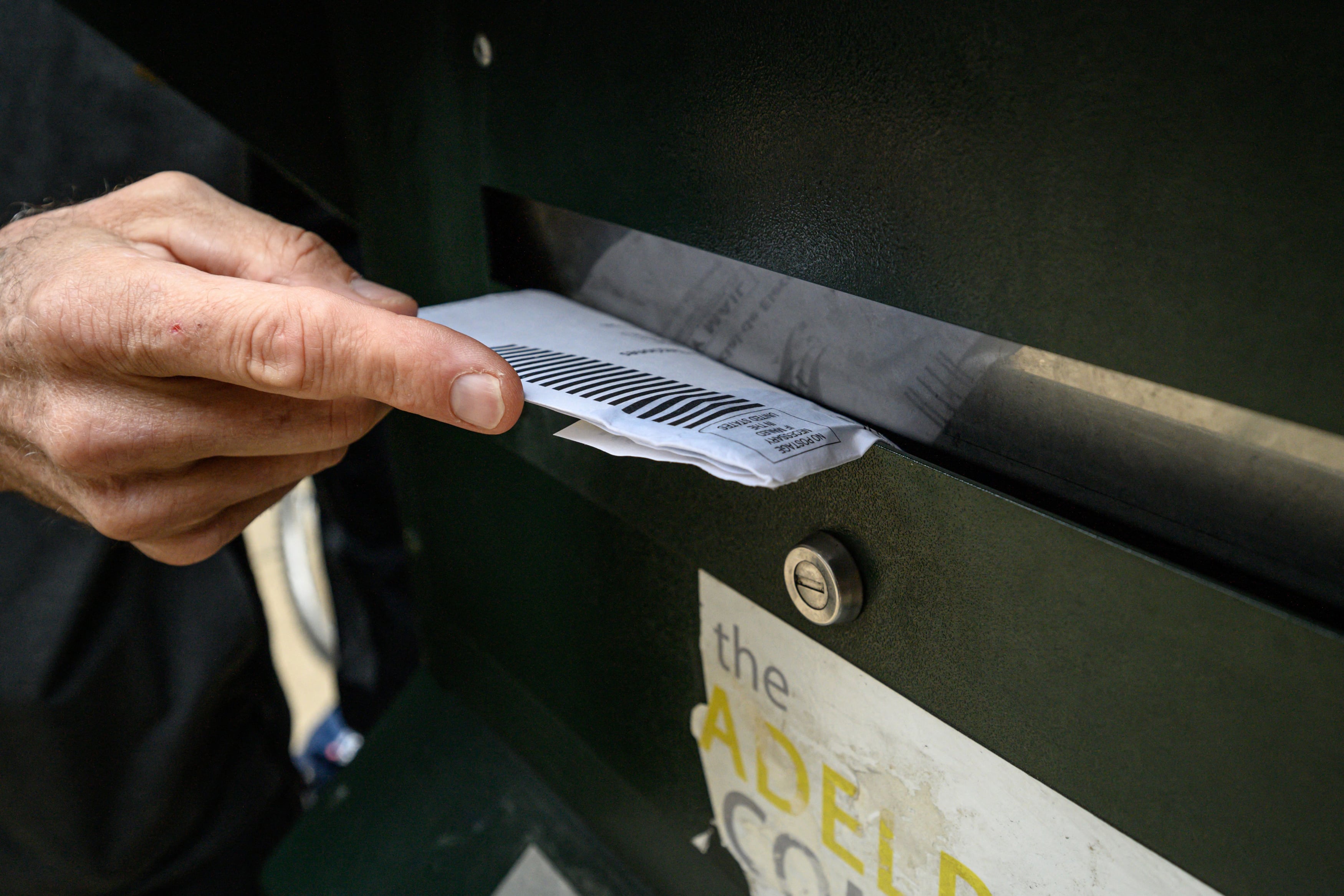Votebeat is a nonprofit news organization reporting on voting access and election administration across the U.S. Sign up for our free newsletters here.
Not counting a voter’s mail ballot because they failed to properly date the return envelope violates their rights under the state constitution, a Pennsylvania appellate court ruled Friday.
Republicans said they would immediately appeal the ruling to the Pennsylvania Supreme Court. But if the decision stands, it could affect thousands of ballots and influence the outcome of close races.
The five-judge Commonwealth Court panel split 4-1 on the decision.
“The refusal to count undated or incorrectly dated but timely mail ballots submitted by otherwise eligible voters because of meaningless and inconsequential paperwork errors violates the fundamental right to vote recognized in the free and equal elections clause,” Judge Ellen Ceisler wrote for the majority, referring to a provision in the state constitution.
The case, brought by a coalition of civil rights groups represented by the American Civil Liberties Union of Pennsylvania among others, is the latest of several challenges to the dating requirement since the state implemented its mail voting law, Act 77, in 2020.
Act 77 required voters to sign and date the outer return envelope of their mail ballots, and return the ballot in a secrecy envelope, in order for them to be counted.
Federal judges have gone back and forth over whether enforcing the requirement violated federal voting law. The current case is the first to directly challenge this requirement under the state constitution.
Lawyers for the plaintiffs hailed the ruling. “This decision has strengthened the right to vote in Pennsylvania,” said Brent Landau, executive director of Public Interest Law Center, one of the groups that sued to challenge the requirement. “Mail ballots will no longer be rejected because of a meaningless requirement to fill out a date that isn’t used for anything.”
The suit named two of the state’s largest counties and the Pennsylvania Department of State as defendants. The department declined to defend the requirement in court and called the ruling a “victory.”
The Pennsylvania GOP and the Republican National Committee both intervened in the case to defend the requirement. In a statement, Claire Zunk, a spokesperson for the Republican National Committee, said the decision is “an example of the worst kind of judicial activism” and that the RNC would appeal the ruling “immediately.”
“Courts should not undermine election confidence and integrity by striking down commonsense election laws enacted by the people’s representatives,” she said.
Adam Bonin, a Philadelphia-based Democratic election lawyer, who was not part of this case but has been involved in other lawsuits challenging the dating requirement, said the ruling should apply statewide, even though only the Department of State and Philadelphia and Allegheny counties were sued.
During oral arguments earlier this month, a lawyer for the ACLU argued that if the state could not show a compelling interest for the date requirement, then the free and equal elections clause in the state constitution would bar officials from using the rule to reject ballots.
In the ruling, Ceisler highlighted the determination in previous cases that the date “is not used to determine the timeliness of a ballot, a voter’s qualifications/eligibility to vote, or fraud.”
“Therefore, the dating provisions serve no compelling government interest,” she wrote.
The state and national Republican parties had argued that the date could be helpful in detecting fraud, or could serve as a backup option for determining the receipt date of a ballot if electronic systems were to fail. They also asserted that, should the judges find the dating requirement invalid, all of Act 77 would have to be struck down, based on the way the law is worded.
But the majority disagreed, saying plaintiffs sought only “a declaration that enforcement of the dating provisions in a manner that excludes undated and incorrectly dated” ballots was unconstitutional.
In a statement, the Pennsylvania Department of State said the decision was a victory for voting rights.
“Multiple court cases have now confirmed that the dating of a mail-in ballot envelope, when election officials can already confirm it was sent and received within the legal voting window, provides no purpose to election administration,” the statement said. “This ruling makes clear a voter’s minor error of forgetting to date or misdating a ballot envelope cannot be a cause for disenfranchisement. Our Administration will always uphold Pennsylvanians’ right to vote and is pleased with today’s ruling.”
Gov. Josh Shapiro, a Democrat, tweeted that the court “got it right.”
The judge who dissented, Patricia McCullough argued that the dating requirement “falls squarely” within the legislature’s authority to establish voting rules, and wrote that the majority ignored “more than a century” of state Supreme Court precedent on the free and equal clause of the state constitution.
The ruling could have a wide impact this November.
During the April primary, counties rejected roughly 8,500 ballots, or 1.22% of those returned, for failing to meet one or more of these standards, according to an analysis of Pennsylvania Department of State data. More than 4,400 of those were rejected for dating issues.
But those numbers are expected to be higher this fall, as more voters will turn out to vote in the presidential election and opt to cast their ballots by mail.
“If there was any real justification to this, we’d be in a different boat, but there isn’t,” Bonin said. “This is what the framers of the Pennsylvania Constitution meant by the free and equal elections clause.”
Carter Walker is a reporter for Votebeat in partnership with Spotlight PA. Contact Carter at cwalker@votebeat.org.






